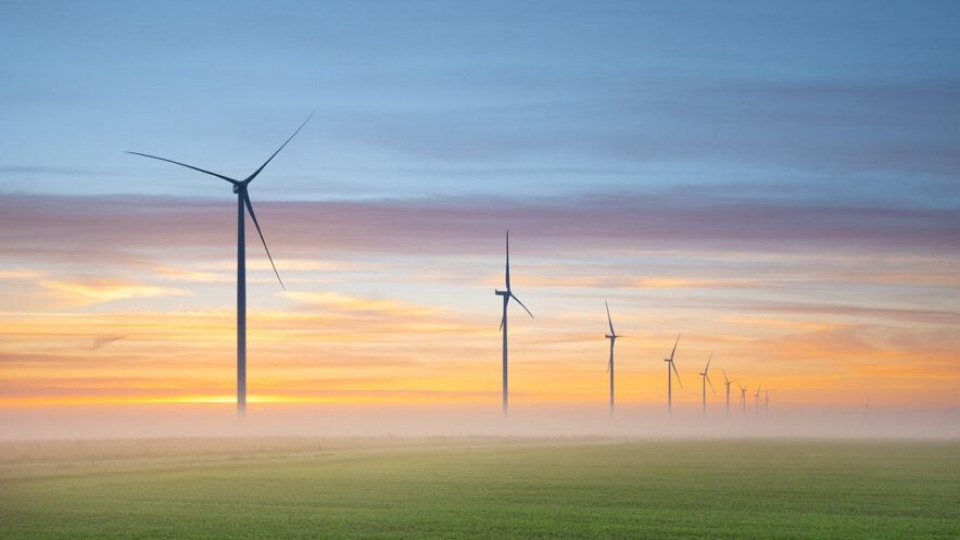- What do you think of the current situation in Bulgaria in terms of energy independence?
- Europe, as well as Bulgaria, should blame themselves for the energy dependence on Russia. For a long time we thought that, as Fukuyama wrote, "the end of history has come" and a peaceful and predictable world awaits us, a world without wars. Or at least a world where no wars are fought in Europe. We did not give a correct assessment of the events of 2014, when Russia occupied Crimea, we hoped that the disaster would pass. I myself never thought that what happened on February 24 this year was possible. I say this as a person who knows the Russian people and society. It turns out that the Russia in which I studied 30 years ago is already different. Or more precisely, its new elite is leading it down a new dangerous path for Europe and the world as a whole.
In this point of view, Bulgaria is in a difficult situation of dependence on supplies of natural gas and other raw materials from Russia, for example the nuclear fuel for the Kozloduy NPP. United Europe is already looking for solutions, but not quickly and effectively enough. Bulgaria, as part of the European family, is also taking steps to replace part of the quantities received until now from Gazprom with liquefied gas from American partners and piped gas from Azerbaijan. Our country is actively involved in the construction of an LNG regasification terminal in Alexandroupolis in Greece. The situation is serious, but surmountable. My personal opinion is that diversification needs a little more time and more decisive consistency because it is a process.
- Do you think that the country can easily handle the constant changes of the renewable energy market?
- At this moment Bulgaria is a country that produces enough electricity to suit its needs as well as for export. I think we are even a bit wasteful in terms of consumption and we are yet to work harder to achieve higher energy efficiency. Your question is logical, but I would say that we are obliged to see the new situation - striving for carbon neutrality, the war in Ukraine, the economic crisis and to preserve the chosen Euro-Atlantic direction. It may not be easy, but it is important to succeed in the future. And here I want to say that clean energy can be produced by conventional plants to guarantee the security of the system. Until they make the transition to green energy, it will be more difficult. But it's also a process.
- Do you think that companies make enough efforts to transition to pure energy in order to become more effective in terms of energetics?
- They are certainly doing their best. But let's not forget that these enterprises are important for every national economy and Europe as a whole. Efforts must be common because these companies preservation and transformation are important for Europe's energy security. The current crisis proves it.
- What is your opinion on solar energy as an independent source of energy in terms of profitability and long-term efficiency?
- Storage technologies are not yet advanced enough to rely solely on them, but they are advancing extremely quickly and are expected to continue to improve in long terms. In recent years, solar panels have become significantly more affordable, with higher efficiency and sustainability. Over the past 10 years, the price of green energy from photovoltaics has fallen 3 times, which attracts investors.
As you know, there is an element of unpredictability in green energy, and for that storage is the next challenge. But green hydrogen the storage of which is possible, can be produced with the help of solar energy. So this energy is certainly going to be an important part of the energy mix, it's just a matter of finding a way to make it part of energy security as well. Until then, there must be other conventional industries to enter the mix to achieve the required balance.
However, a big advantage of solar energy is that we can sell the excess directly to an electricity trader, thus making extra profit.
- What do you think of biogas production? Do you think that Bulgaria can use biogas as a much cheaper and economical solution for producing electricity as well as het energy and cooling?
- Biogas is a universal renewable fuel that can be successfully used in the process of decarbonization of heat and electricity. According to studies, if all fossil fuels are to be replaced by biogas, 240% of anthropogenic carbon dioxide emissions on the planet would be eliminated.
Global biogas production as of 2015 is 15GW of electricity. The European Union is the world leader in the production of electricity from biogas with over 10 GW of installed capacity and over 17,400 plants.
Biogas is an excellent alternative to ensure clean energy production. As far as I know, there are companies in Bulgaria that are developing projects specifically for the production of energy from biogas.
If biogas enters Bulgaria, there will probably be talk again that biogas is produced from waste, because it is a sore topic here. It should be clear that the fuel is produced by fermentation of biological products in an anaerobic environment. To obtain biogas, biomass, ordinary straw, wood residues, sunflower stalks and others are used. These are fuels whose combustion does not emit any harmful emissions. Moreover, left to rot in nature, they emit nitrogen, which is even more harmful than sulfur dioxide, given that it accumulates much lower in the atmosphere.
The use of biogas in production is an excellent step towards both diversification and balancing of the energy system. It's predictably clean production.
- And finally, what is your opinion on the usage of electrolysis plants for hydrogen production? Do you think that companies that invest in this type if installations will reduce their investment costs that they usually spend on logistic infrastructure?
- Electrolysis plants are usually used for the production of "green" hydrogen. It is this hydrogen where renewable energy is used in the process of its generation. It is the green hydrogen that has high hopes in the process of decarbonizing the industry, although the technology is still developing. Currently, 9 liters of water and 55 kWh of electricity are needed for 1 kg of green hydrogen, according to calculations by the European Commission from 2021, its production costs between 2.50 euros and 5.50 euros. I think it's only a matter of time before the price drops.
It is on the production of energy from green hydrogen through electrolyzers that the whole world places its hopes. I can give as an example that a similar plant happened on the African continent in Namibia.
The advantage of new technologies is that they provide the possibility to store hydrogen, and this is important because the production of green energy at 100% is impossible because it does not guarantee the predictability of production. We can expect the month of August to be very sunny and hope to produce large amounts of PV energy, but have 10 days of rain, which will spoil our plans, reduce production accordingly and we may have a shortage. Therefore, in the energy industry of the future, it is important to introduce safe methods of electrical energy storage. Since there are not enough reliable ones at the moment, it is not yet time to completely give up on reliable sources of energy, such as coal and natural gas.
Source: eurasiabusinesstoday.com









Leave a comment